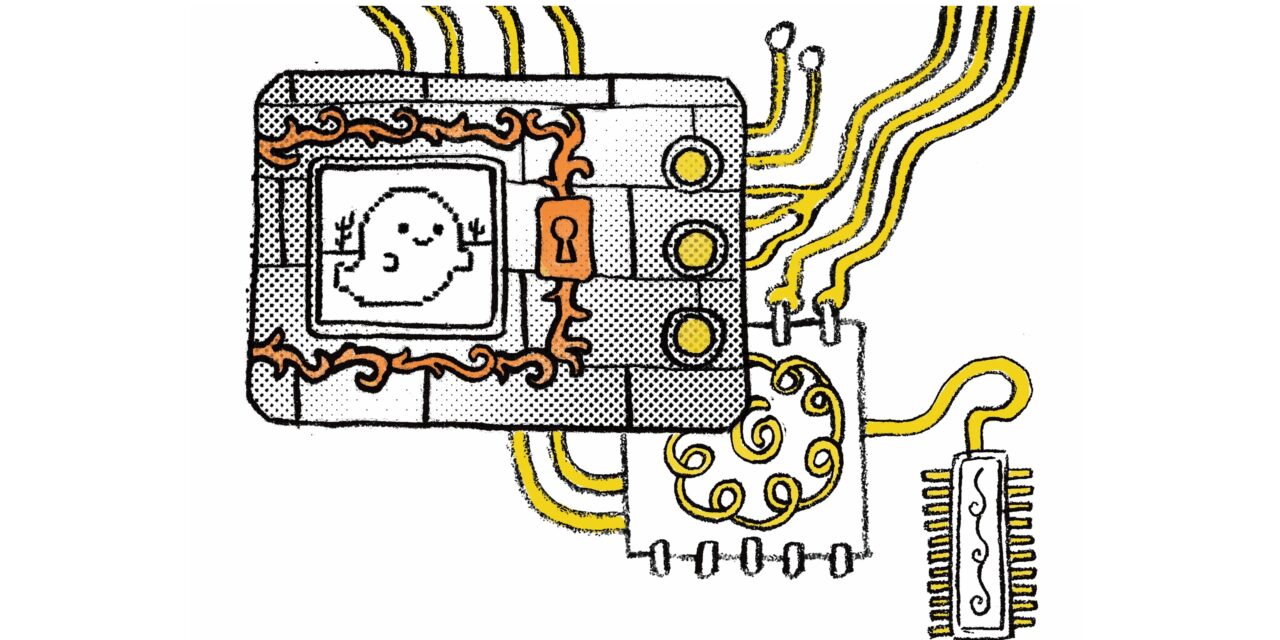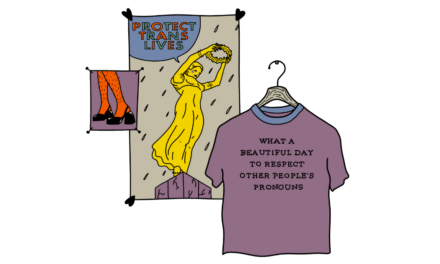DE: Eine Kolumne mit Kelly Kosel, in der an Gefühlen gefummelt, Fäden verfolgt und Themen rund um Sexualität, Körper, Intimität und Beziehungen eingeladen werden.
FR: Une chronique qui s’adresse aux émotions pour démêler certaines de vos questions sur le sexe, les relations, le corps et l‘intimité.
EN: An Advice Column that fiddles about feelings to untangle some of your questions about sex, relationships, bodies, and intimacy.
You’ve got questions?
Du hast Fragen? As-tu des questions ? Du hues Froen?
feelings@queer.lu
GHOSTING?!
In keeping with the Halloween edition, we talk about the ghosts in our Messenger who never got back to us. And about the ghosts of our guilty conscience when we disappear into thin air without letting the other person know.
There are many reasons for ghosting, mostly because it’s uncomfortable (and stressful) to reject someone, set your own boundaries, communicate your needs and deal with the other person’s subsequent feelings. This can happen in all kinds of relationships – from flirts who stop replying on Tinder to friends who disappear altogether without comment or dates who suddenly break off contact after a last nice date. Ghosting is usually unpleasant for everyone involved. So what should you do…?
... IF YOU HAVE BEEN GHOSTED
Whether flirt, friend, or ex: being ghosted always hurts. The closer and longer the relationship was, the worse. You opened yourself up, and your trust was violated. We often question ourselves or feel ashamed. The following applies here: Ghosting has nothing to do with you, but with the other person. In the vast majority of cases, it is not about you, but about the other person’s feelings of being overwhelmed, difficult emotions, or life circumstances. The exception is when a person has been unkind, transgressive, or abusive. Then the safest option may be to break off contact by ghosting.
This is hardly comforting, but it can help to let go of self-doubt and shame. Here are a couple more tips:
- Write one message. You can ask once if everything is ok and if the person is no longer interested in flirting/dating/being friends/being in a relationship. If the person doesn’t get in touch (give it a few days or weeks), then it’s time to find closure and let it go. (You can listen to “Let it go” really loud and sing along off-key.)
- Okay, maybe write a second and (important!) final message. You can find closure on your own. However, it helps some people to write a goodbye message. Something like: ‘You didn’t get back to me when I asked, so I’m assuming you don’t want any more contact. I would have liked you to tell me that instead of breaking off contact without any communication. Take care. Please note: This message is not intended to insult the ghost, to convince them to come back, or to write a reply after all. So pay attention to your expectations here. The aim of this message is to make you feel better about yourself.
- Accept that you have been ghosted – and allow yourself to feel your emotions. Anger, disappointment, sadness, shame, … Only by allowing ourselves to experience these emotions will they pass, and we can (sooner or later) let go of the stressful thoughts and feelings.
- Do something good for yourself. Be kind to yourself. You can’t control the person who ghosted you; you can only control your reaction. Treat yourself to 8 hours of sleep and a massage. Buy yourself your favorite foods, go for a walk in nature, give yourself a hug. Whatever makes you feel good.
- If the ghost was “only” a brief online flirt, the following can also help: get over yourself. Evaluate whether the situation really deserves so much of your energy right now.
- Activate your social circles and meet people who love you. Let them hug you. Do something nice together. Talk about the situation. Give yourself the opportunity to (re)establish and strengthen your feelings of security and trust. Feel the appreciation and affection of your friends.
- If you have been together or friends with the person who ghosted you for a long time, a period of heartache may follow the ghosting. Urgh. It’s best to re-read the tips on heartbreak in issue 2 of this magazine.
- See what the ghosting triggers in you. For example, does it remind you of feelings of abandonment in past relationships or in your childhood? Better understanding where your emotions come from can help you categorize them, deal with them better in the future, and gain a little distance.
- Think about what you want and expect from communication (in different relationships). Do you want others to write back quickly or take their time? How long can a reply “keep you waiting”? Do you want people to let you know if they won’t get back to you for a few days, or do you find this rather stressful? What do you want when communicating difficult feelings? How would you like to talk about conflicts? How do you behave in conflicts? This self-reflection can bring clarity and relaxation for you and simplify conversations in relationships – and help you to deal with different expectations.
... IF YOU HAVE GHOSTED SOMEONE
Oh dear. We feel ashamed. Condemn ourselves as bad people. Or repress these feelings. The most important thing in this situation is to forgive ourselves. This helps us to avoid getting ourselves into such unpleasant situations in the future. How can we do this? Here are a few tips:
- Try to understand what happened. Are you currently going through a difficult phase in your life? Was there something specific about the person that was challenging for you, or do you generally find it difficult to let people down? What exactly overwhelmed you?
- Own it. Feel your emotions. Talk about them with others. Try not to justify yourself, but to take your feelings and needs seriously.
- Be gentle with yourself. There’s no point in carrying around a guilty conscience forever. Let it go. You can learn something for the future, but there is no point in holding on to the feeling of shame – this is more likely to encourage further ghosting behavior and does not help you or others. (Write down: My feelings, needs, and boundaries are valid. I am allowed and able to express them. I can and may understand what I want and say it. I can ask for help if I am overwhelmed.
- It depends a lot on the relationship, but sometimes there are moments when it’s good to write a message to the other person. Something along the lines of: Hi, you don’t have to respond to this, I just wanted to say sorry. It wasn’t cool of me to ghost you. It wasn’t my intention to hurt you, and the fact that I didn’t get back to you had a lot to do with me. Best regards. This accountability, in hindsight, can break the cycle of ‘ghosting and being ghosted’ through honest communication.
- For the future: be honest with yourself and your resources. How much time do you really want to spend on Tinder? Do you have enough energy for your friends? Can you set your priorities so that you can do justice to your relationships?
- Prepare yourself for goodbyes. Think about messages, for example, for your next dating phase, phrases like: Hi, I really enjoyed our date. I realize that I can’t commit to any more dates right now. Lots of love. Or: I realize that I don’t have the resources right now to keep our conversation going so intensely. Or: Your behavior has irritated me, and I’m not feeling the vibe. All the best. Exchange closing messages with your friends. Write down phrases for situations that you know can be challenging for you – they’re likely to happen again.
- You can do it. You really can. Learning to take good care of yourself and take responsibility for yourself – maintaining your boundaries, recognizing your feelings and needs, and communicating all of this – can feel like a lot of work. However, the whole thing is not a sprint, but a (lifelong) marathon: you have time and you can manage your energy. Step by step. These skills are not only beneficial against ghosting, but for all areas of our lives and, above all, our relationship with ourselves.
© Illustration: Charlotte Muniken
Article translated from German





